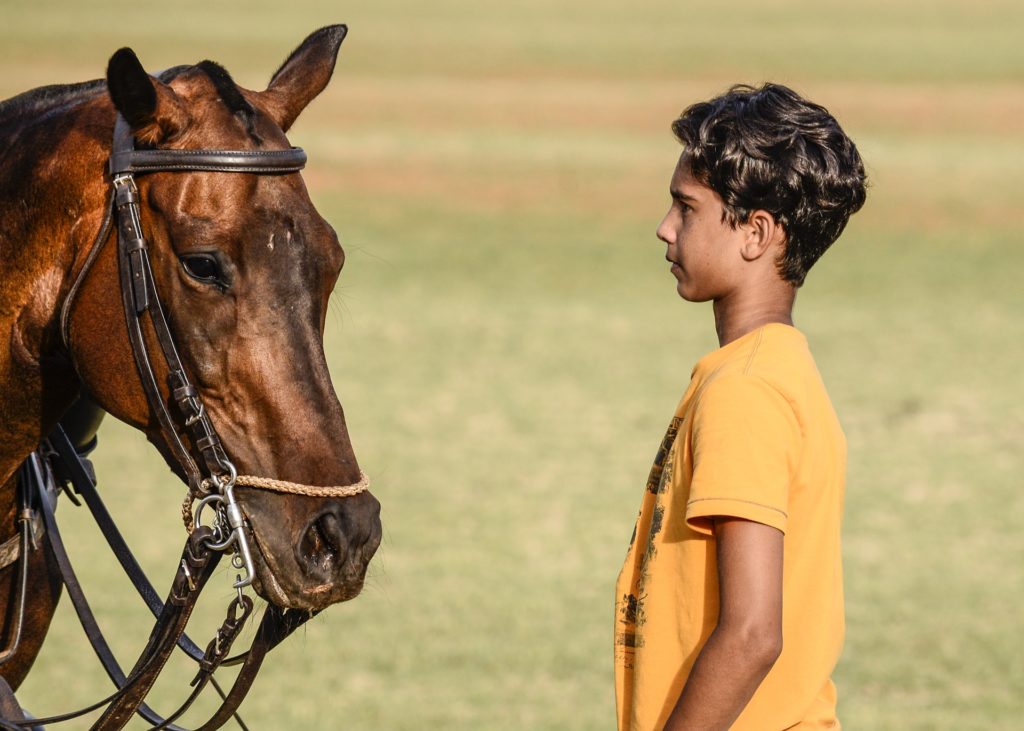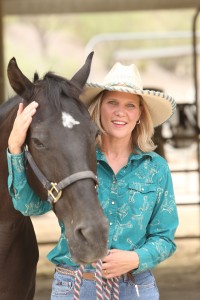- Calls to this hotline are currently being directed to Within Health, Fay or Eating Disorder Solutions
- Representatives are standing by 24/7 to help answer your questions
- All calls are confidential and HIPAA compliant
- There is no obligation or cost to call
- Eating Disorder Hope does not receive any commissions or fees dependent upon which provider you select
- Additional treatment providers are located on our directory or samhsa.gov
Equine Therapy for Eating Disorder & Trauma Patients

Article Contributed by Staff of The Meadows Ranch
During equine therapy, the uncertainty of the relationship with the horses and the desire to build trust with them provides moments where coping skills such as grounding, resourcing, and orienting are possible. These techniques are similar to other treatment modalities, such as EMDR and Somatic Experiencing.
Equine Therapy: Experiential Learning
Equine therapy is considered experiential learning. Patients practice being present and experience their true emotions while remaining grounded. The result of learning how to regulate one’s emotions facilitates trust between the horses and participants.
Horses are social and herd animals. Their survival depends on acute awareness of their surroundings and direct communication within the herd. Individuals with eating disorders and trauma often struggle to identify and tolerate their emotions.
Horses rely on open and honest communication, along with authenticity. The horses use their body language to communicate based on how they perceive a given individual. This provides instant feedback to patients and is known as “mirroring.” Mirroring creates moments where patients are better able to understand how they affect the world around them.
Developing Leadership Skills
Another aspect of equine therapy is helping patients who struggle with eating disorders and trauma to develop assertiveness and leadership skills. For example, this is demonstrated by leading the horse around the arena, which entails decision-making skills.
Therapeutic activities with the horses allow patients to develop a plan and execute it. These skills are also required of patients as they transition back into their lives.
When patients participate in tasks such as observing and brushing the horses, they learn about spatial distance, boundaries, body language, awareness of the horse and self. Being in the moment and noticing the horse’s breathing or warmth can lead to feelings of safety and serenity. The process of healing begins by tapping into resources to self-regulate emotions.
Equine Therapy Helps in Nurturing Feelings of Connectivity and Safety
 Riding horses mirrors the concept of being carried and letting go of one’s burdens. The rider is required to let go of some degree of control. Heintz’s study in 2009 reveals that the gait of the horse is similar to that of the human walk.
Riding horses mirrors the concept of being carried and letting go of one’s burdens. The rider is required to let go of some degree of control. Heintz’s study in 2009 reveals that the gait of the horse is similar to that of the human walk.
When a horse carries an adolescent or adult, it is the closest experience to being held by a mother. Doing so nurtures feelings of connectivity and safety.
Connecting with the Horses
Traumatized eating disorder patients are able to connect with horses in ways they haven’t been able to connect with other human beings, often leading to therapeutic moments outside standard therapy. Horses and young women have a connection that is innate and healing.
Article Contributed by Staff of The Meadows Ranch:
For over 25 years, The Meadows Ranch has offered an unparalleled depth of care through its unique, comprehensive, and individualized program for treating eating disorders and co-occurring conditions affecting adolescent girls and women. Set on scenic ranch property in the healing landscape of Wickenburg, Arizona, The Meadows Ranch allows for seamless transitions between its structured multi-phase treatment. A world-class clinical team of industry experts leads the treatment approach designed to uncover and understand the “whys” of the eating disorder through a host of proven modalities. Providing individuals with tools to re-engage in a healthy relationship with food – and with themselves – disempowers eating disorders and empowers individuals with a renewed enthusiasm for life. Contact us today at 888-496-5498 and find out why The Meadows Ranch is the best choice for eating disorder treatment and recovery. For more information call 1-888-496-5498. or visit www.themeadowsranch.com.
References:
Heintz, B. (2009). Lucia-Therapy Given to an Adolescent with Post-traumatic Stress Disorder. Equine Facilitated Psychotherapy Case Studies & International Reports, 72-73.
The opinions and views of our guest contributors are shared to provide a broad perspective of eating disorders. These are not necessarily the views of Eating Disorder Hope, but an effort to offer discussion of various issues by different concerned individuals.
Recently Reviewed By: Jacquelyn Ekern, MS, LPC on July 2, 2018
Published on EatingDisorderHope.com

The EatingDisorderHope.com editorial team comprises experienced writers, editors, and medical reviewers specializing in eating disorders, treatment, and mental and behavioral health.

